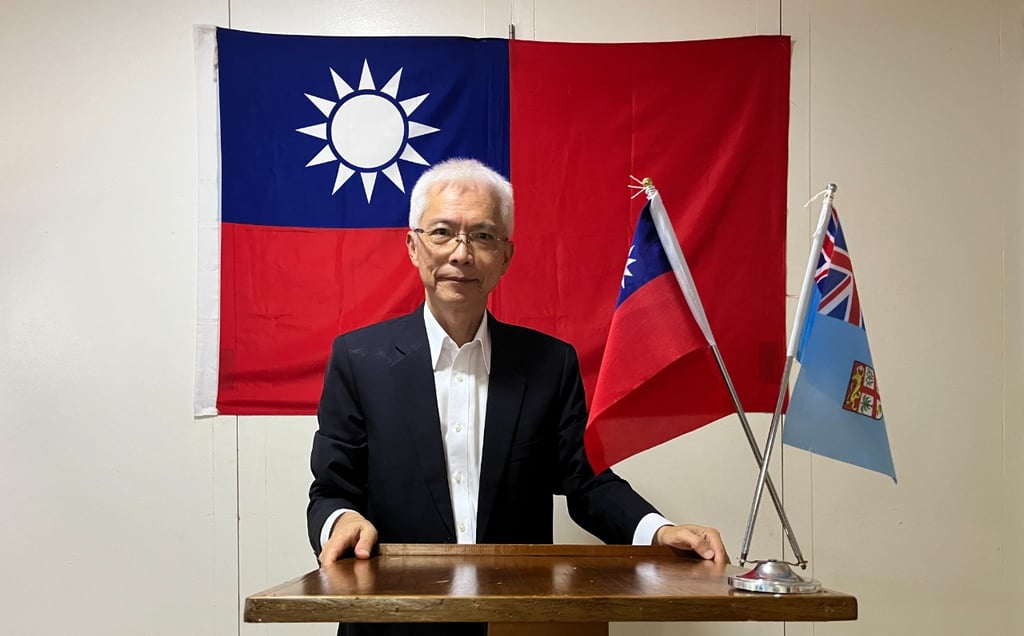Taiwan’s Ambassador to Fiji Calls for UN Inclusion
FIJI NEWS


Suva, Fiji — Taiwan’s Ambassador to Fiji, Joseph Chow, has renewed Taiwan’s call to be included in the United Nations system, saying the continued exclusion of 23 million Taiwanese people is unjust, counterproductive, and based on a distortion of history.
Chow’s remarks come as the UN commemorates its 80th anniversary under the theme “Better Together: 80 years and more for peace, development and human rights.” He said it is time for the UN and its members to right this wrong and welcome Taiwan into the international community.
Chow stressed that UN General Assembly Resolution 2758, adopted in 1971, is often misinterpreted. The resolution decided who would represent China in the UN, but he said it did not determine Taiwan’s status. It neither declared that Taiwan is part of the People’s Republic of China nor granted Beijing the right to represent Taiwan. According to Chow, China has misrepresented this resolution as the basis of its “one China principle” and pressured the UN Secretariat into excluding Taiwan. He argued that this political manipulation undermines the integrity of the UN system.
Highlighting Taiwan’s contributions, Chow described Taiwan as a responsible global stakeholder. Positioned on the front line of the Indo-Pacific, Taiwan defends democracy against authoritarian expansion while also playing a central role in the global economy. Taiwan is the world’s 21st-largest economy, producing over 60 per cent of the world’s semiconductors and 90 per cent of the most advanced ones. Its role in global supply chains, innovation, and technological development, he said, is indispensable.
Chow also pointed to Taiwan’s international cooperation in public health, sustainable development, and humanitarian assistance. He cited examples such as partnering with Paraguay to improve hospital information systems and assisting Palau in its efforts to become a smart and sustainable island nation.
Taiwan’s exclusion, Chow argued, contradicts the UN’s own 2030 Agenda for Sustainable Development, which pledges to “leave no one behind.” Despite Taiwan’s strong record of advancing sustainability and resilience, it is deliberately left outside. This exclusion not only discriminates against the Taiwanese people but also deprives the global community of Taiwan’s expertise, resources, and goodwill, which Chow said are urgently needed to address climate change, pandemics, and economic inequality.
He further emphasised that Taiwan’s participation would help safeguard peace and stability in the region. “Peace and stability across the Taiwan Strait are essential to the Indo-Pacific and beyond,” Chow said. He noted that Taiwan seeks no conflict with China, but that Beijing’s coercion and military threats jeopardise regional stability. Allowing Taiwan to participate meaningfully in the UN system, he said, would affirm that disputes should be resolved peacefully and on the basis of dignity and parity, strengthening the rules-based international order.
Chow also criticised the UN’s current practices of denying entry to Taiwanese passport holders, barring Taiwanese journalists, and excluding Taiwan from forums, describing them as discriminatory and in violation of the UN Charter’s principles.
“As the world faces mounting crises—from climate change to authoritarian coercion—the United Nations cannot afford to sideline Taiwan,” Chow said. “To achieve peace, prosperity, and sustainability, Taiwan must be part of the solution. It is time for the UN and its members to welcome Taiwan into the family of nations.”